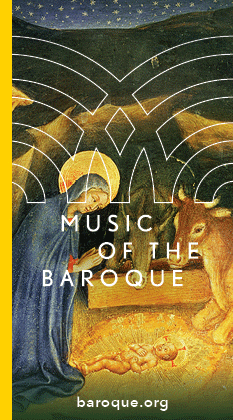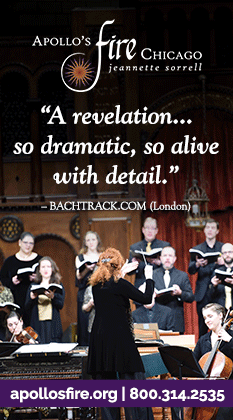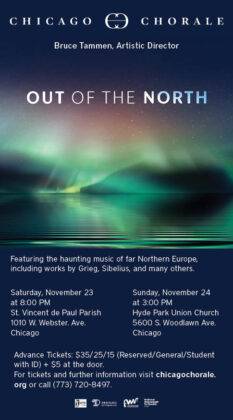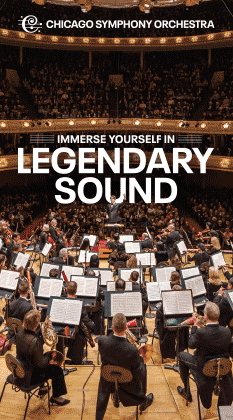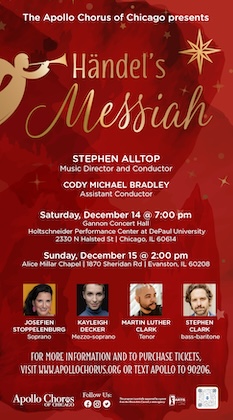MTT, CSO wrap the year in style with Russian-French program
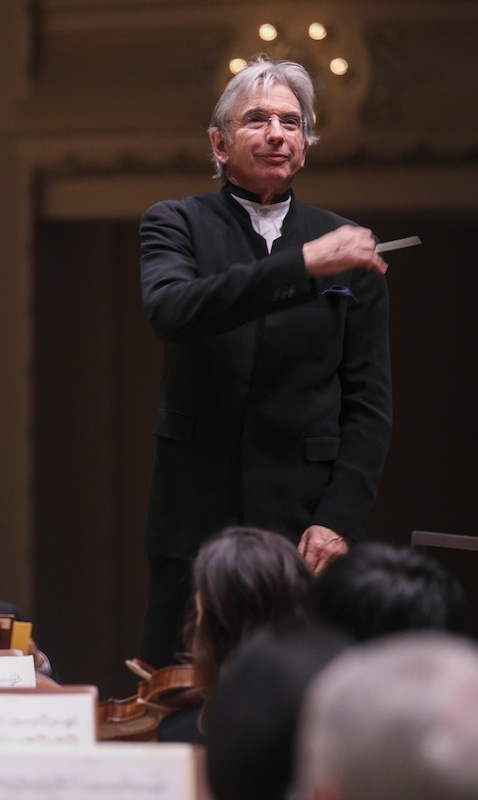
Among the most welcome of regular Chicago Symphony Orchestra podium guests is Michael Tilson Thomas. The American conductor is wrapping the CSO’s year in grand style this weekend, and delivered typically smart and distinctive performances in a Russian-French program Thursday night. A notably youthful and energetic presence at 71, Tilson Thomas managed to find a fresh take and provide some characteristic topspin on music of Stravinsky, Saint-Saëns and Prokofiev.
The evening led off with Stravinsky’s Scenes de ballet. Amazingly, this was the first CSO performance of this music in 71 years, the work not heard since Desiree Defauw conducted it in 1945.
Tilson Thomas pointed out in his introduction that he has a personal connection with the piece, noting that his teacher, Ingolf Dahl, helped Stravinsky prepare the score. While it is indeed a “divertissement” as stated, it is a wholly delightful one, written for, of all things, a Billy Rose Broadway show.
MTT is one of our finest Stravinsky conductors, and his vibrant performance consistently put across the ingenuity and wit of this music. From the cheerfully astringent rhythmic bustle to the wryly affectionate, show-bizzy elements and unapologetically grand coda, conductor and musicians made the most of this engaging score. Highlights included Mark Ridenour’s noble trumpet solo and the lilting dance for two cellos, gracefully rendered by John Sharp and Brant Taylor.
Camille Saint-Saëns’ Cello Concerto No. 1 is a divertissement of sorts as well, a 19-minute showpiece lightish in style yet so consummately crafted in its blend of solo virtuosity and melodic appeal, that it remains irresistible for cellists and audiences alike.
One could hardly imagine a more communicative interpreter for this music than the gifted Gautier Capuçon. Drawing a dark, sable tone from his 1701 Goffriller instrument, the French cellist was fully in synch with the concerto’s rhapsodic style, and sailed through the blistering technical challenges with unruffled ease and elegant virtuosity. Capuçon uncovered greater expressive depth in this score than most, drawing a widely terraced dynamic range and feather-light tone in the ruminative passage linking to the finale. Tilson Thomas was a fully sympathetic collaborator, alert to the soloist’s phrasing, keeping the accompaniment in scale, and eliciting playing of piquant delicacy in the Allegretto section.
The second half was devoted to Prokofiev’s ballet Romeo and Juliet, part of the CSO’s season-long observance of the Russian composer’s 125th birthday anniversary.
Even in this much-played and locally overprogrammed music, Tilson Thomas managed to find a fresh approach, leading a full-blooded performance of his own suite. The conductor’s assemblage concentrates largely on music from Acts I and II, passing on some of the most oft-played items, including “Masks” and “The Death of Juliet.”
Yet this confection proved very effective in its own right, emerging as a single, cohesive 44-minute entity rather than yet another potted performance of the ballet’s greatest hits.
This suite also included some rarely excerpted numbers, all neatly characterized by the conductor and orchestra. Among these were a gently melancholy “Interlude,” an affectionate portrait of Juliet’s nurse, the satiric galumphing “Folk Dance” and, especially, “The Duke’s Command,” which grew from pompous portentousness to a clangorous climax.
MTT’s approach is more balletic and leans toward the score’s warmth and lyricism more than, say, Riccardo Muti’s whipcrack vehemence. “The Young Juliet” was charming in its youthful vivacity, and while the “Dance of the Knights” was imposing in its malevolent tread, the contrasting middle section was gracious and charming with lovely flute and oboe contributions by Stefán Ragnar Höskuldsson and Alex Klein. The “Balcony Scene” was beautifully done as well, growing from a hushed tenderness to an impassioned climax and glowing coda.
Yet there was no lack of dramatic intensity. The CSO violins were dazzling in the whirling string figures of “The Fight,” and “Mercutio” captured the cheerful, off-center bravado of Romeo’s friend. “The Death of Tybalt” provided a dark and emphatic conclusion, with Tilson Thomas still keeping the music in scale.
The program will be repeated 1:30 p.m. Friday, 8 p.m. Saturday, and 3 p.m. Sunday. cso.org; 312-294-3000.
Posted in Uncategorized
